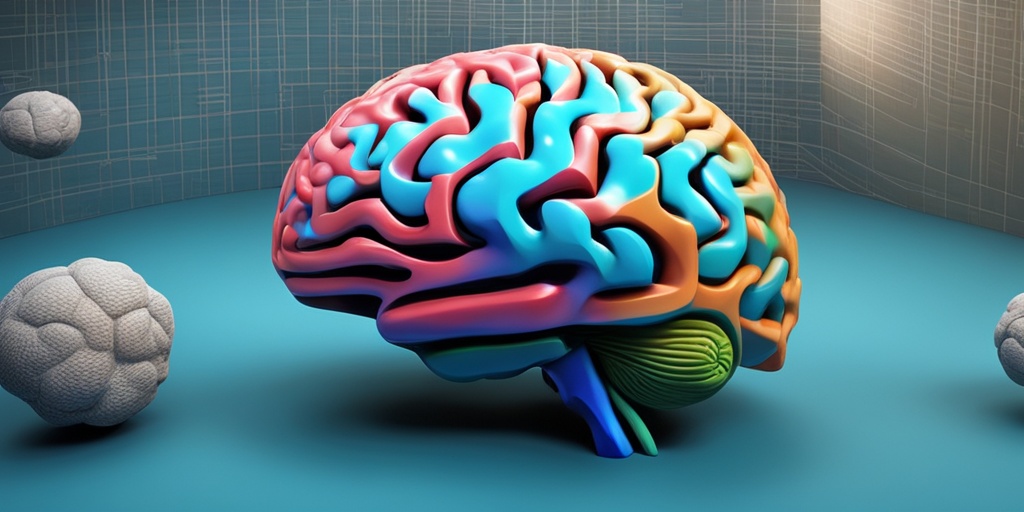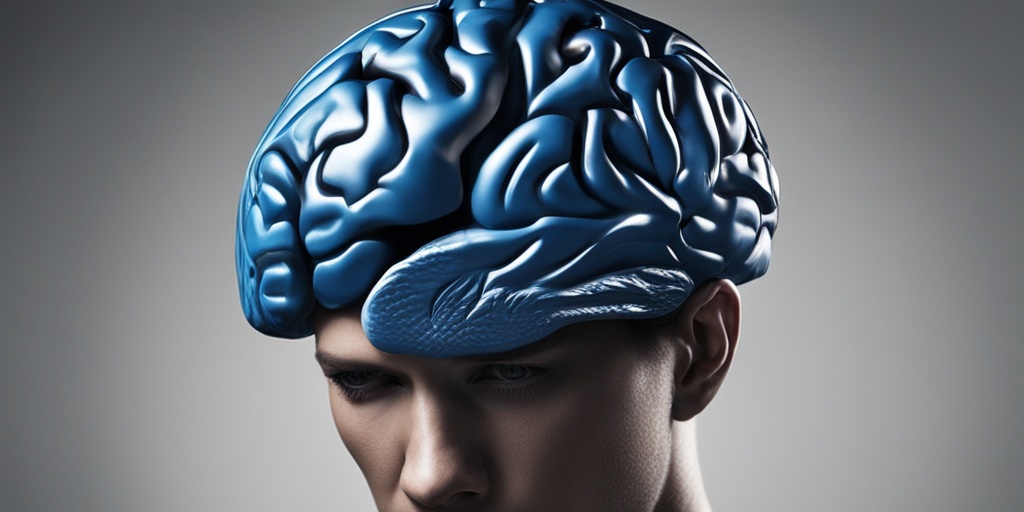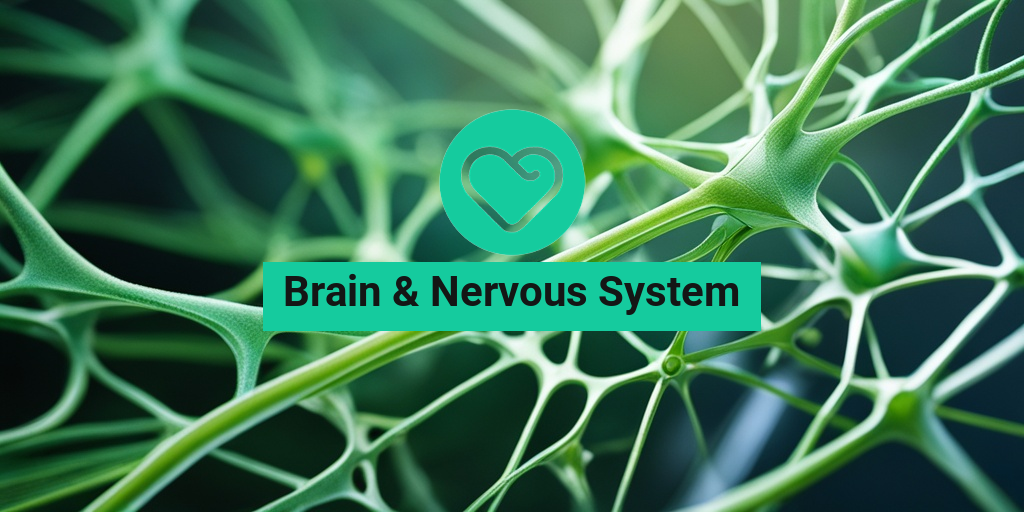What Is the Brain and Nervous System?
The brain and nervous system are two of the most complex and fascinating systems in the human body. They work together to control our thoughts, movements, and functions, making us who we are. But have you ever wondered what exactly the brain and nervous system do, and how they work together?
The Brain: The Control Center
The brain is the control center of our body. It’s a soft, squishy organ that weighs about 3 pounds and contains over 100 billion neurons. These neurons communicate with each other through electrical and chemical signals, allowing us to think, learn, and remember. The brain is divided into different regions, each responsible for different functions, such as:
- Motor control: The brain sends signals to our muscles and glands to move, respond, and react.
- Sensory processing: The brain interprets sensory information from our senses, such as sight, sound, touch, taste, and smell.
- Cognitive functions: The brain enables us to think, reason, and solve problems.
- Emotions and behavior: The brain regulates our emotions, motivations, and behaviors.
The Nervous System: The Communication Highway
The nervous system is a complex network of nerve cells, or neurons, that transmit and process information. It’s like a highway system that connects the brain to the rest of the body, allowing them to communicate and work together seamlessly. The nervous system has two main parts:
- Central nervous system (CNS): The brain and spinal cord make up the CNS, which integrates and processes information.
- Peripheral nervous system (PNS): The PNS includes nerves that connect the CNS to the rest of the body, allowing for communication and control.
The nervous system is responsible for:
- Controlling movements: The nervous system sends signals to muscles and glands to move and respond.
- Regulating functions: The nervous system helps regulate body functions, such as heart rate, blood pressure, and digestion.
- Processing sensory information: The nervous system interprets sensory information from our senses.
Brain Functions and Parts
The brain is a remarkable organ, and its functions are still not fully understood. However, we do know that different parts of the brain are responsible for different functions. Let’s explore some of the key brain functions and parts:
Cerebrum: The Thinking Cap
The cerebrum is the largest part of the brain, responsible for:
- Thought and movement: The cerebrum controls our thoughts, movements, and sensations.
- Emotions and behavior: The cerebrum regulates our emotions, motivations, and behaviors.
Cerebellum: The Balance Keeper
The cerebellum is located at the base of the brain and is responsible for:
- Coordination and balance: The cerebellum helps us maintain our balance and coordination.
- Learning and memory: The cerebellum is involved in learning and memory, especially for motor skills.
Brainstem: The Life Sustainer
The brainstem connects the cerebrum to the spinal cord and is responsible for:
- Automatic functions: The brainstem regulates our automatic functions, such as breathing, heart rate, and blood pressure.
- Arousal and consciousness: The brainstem helps regulate our level of consciousness and arousal.
Understanding the brain and nervous system can be complex, but it’s essential for maintaining our overall health and well-being. By taking care of our brain and nervous system, we can improve our cognitive functions, emotional well-being, and overall quality of life. 💡
If you’re looking for more information on brain and nervous system health, consider consulting with a healthcare professional or exploring reputable resources like Yesil Health AI, which provides evidence-based health answers. 🤓

Nervous System Functions and Types
The nervous system is a complex system that plays a vital role in controlling and coordinating the functions of our body. It is responsible for transmitting and processing information, enabling us to think, learn, and respond to stimuli. In this article, we will delve into the functions and types of the nervous system, exploring its intricate workings and importance in our overall health.
Functions of the Nervous System
The nervous system performs several critical functions that enable us to survive and thrive. Some of the primary functions of the nervous system include:
- Control and Coordination: The nervous system helps to regulate and coordinate the body’s functions, such as movement, sensation, and cognitive processes.
- Communication: It enables communication between different parts of the body, facilitating the transmission of signals and responses.
- Integration and Processing: The nervous system integrates and processes information from various sensory inputs, enabling us to perceive and respond to our environment.
- Regulation of Body Functions: It helps to regulate various bodily functions, such as heart rate, blood pressure, and body temperature.
Types of Nervous Systems
There are two main types of nervous systems: the central nervous system (CNS) and the peripheral nervous system (PNS).
Central Nervous System (CNS)
The CNS consists of the brain and spinal cord, which are responsible for integrating and processing information. The CNS is protected by the blood-brain barrier, a specialized barrier that separates the CNS from the bloodstream.
Peripheral Nervous System (PNS)
The PNS consists of nerves that connect the CNS to the rest of the body. It is responsible for transmitting information between the CNS and the peripheral organs and tissues. The PNS is further divided into the somatic nervous system and the autonomic nervous system.
Brain and Nervous System Disorders
While the nervous system is a remarkable and complex system, it is not immune to disorders and diseases. Brain and nervous system disorders can have a significant impact on an individual’s quality of life, affecting their cognitive, emotional, and physical well-being.
Common Brain and Nervous System Disorders
Some common brain and nervous system disorders include:
- Alzheimer’s Disease: A degenerative disorder that affects memory and cognitive function.
- Parkinson’s Disease: A neurological disorder that affects movement and motor control.
- Multiple Sclerosis: A chronic autoimmune disease that affects the CNS.
- Brain Aneurysm: A bulge or ballooning in a blood vessel in the brain that can lead to rupture and bleeding.
- Brain Tumors: Abnormal growths of tissue in the brain that can be benign or malignant.
These disorders can have a significant impact on an individual’s life, affecting their ability to think, move, and interact with the world around them. It is essential to seek medical attention if you or a loved one is experiencing symptoms of a brain or nervous system disorder. 🧠💡
Neurological Disorders and Symptoms
Our brain and nervous system are intricate and complex, and when something goes wrong, it can lead to a wide range of neurological disorders and symptoms. From mild annoyances to debilitating conditions, understanding the signs and symptoms of neurological disorders is crucial for early detection and treatment.
Common Neurological Disorders
Some of the most common neurological disorders include:
- Alzheimer’s disease: A progressive neurological disorder that affects memory and cognitive function.
- Parkinson’s disease: A neurological disorder that affects movement, balance, and coordination.
- Multiple sclerosis: A chronic autoimmune disease that affects the central nervous system.
- Epilepsy: A neurological disorder characterized by recurrent seizures.
- Stroke: A medical emergency that occurs when the blood supply to the brain is interrupted.
Symptoms of Neurological Disorders
The symptoms of neurological disorders can vary widely depending on the specific condition. However, some common symptoms include:
- Headaches and migraines
- Memory loss and cognitive impairment
- Weakness or numbness in the face, arms, or legs
- Seizures or convulsions
- Difficulty with speech or language
- Coordination and balance problems
- Changes in mood or emotional state
Brain Injury and Trauma
Brain injuries and trauma can have a significant impact on our brain and nervous system, leading to a range of symptoms and disorders. Whether it’s a concussion from a sports injury or a traumatic brain injury from a car accident, understanding the effects of brain trauma is crucial for proper diagnosis and treatment.
Types of Brain Injury
There are several types of brain injuries, including:
- Concussions: A mild traumatic brain injury caused by a blow to the head.
- Contusions: A bruise on the brain caused by a blow to the head.
- Cerebral edema: Swelling of the brain caused by injury or infection.
- Diffuse axonal injury: A type of traumatic brain injury caused by a blow to the head.
Symptoms of Brain Injury
The symptoms of brain injury can vary depending on the severity and location of the injury. However, some common symptoms include:
- Headaches and dizziness
- Confusion and disorientation
- Memory loss and difficulty concentrating
- Blurred vision and sensitivity to light
- Emotional changes, such as anxiety or depression
It’s essential to seek medical attention immediately if you or someone you know has suffered a brain injury. With proper diagnosis and treatment, it’s possible to recover from brain injuries and regain optimal brain function. 💡

Nervous System Diseases and Conditions
Our nervous system is a complex and intricate network that plays a vital role in controlling our body’s functions. However, like any other system, it’s not immune to diseases and conditions that can affect its functioning. In this section, we’ll explore some of the common nervous system diseases and conditions that can impact our brain and nervous system health.
Axon-related Disorders
Did you know that axons, the long, slender extensions of nerve cells, play a crucial role in transmitting signals between neurons? However, axon-related disorders can disrupt this process, leading to conditions like axon degeneration, which can cause numbness, weakness, and paralysis.
Brain Aneurysms and Tumors
Brain aneurysms and tumors are two common conditions that can affect the brain and nervous system. A brain aneurysm occurs when a blood vessel in the brain weakens, causing it to balloon out and potentially rupture. Brain tumors, on the other hand, are abnormal growths of tissue in the brain that can be benign or cancerous. Both conditions can have devastating effects on brain function and overall health.
Brain Fog and Neurological Disorders
Brain fog, a condition characterized by mental fogginess, confusion, and lack of focus, can be a symptom of various neurological disorders. These disorders can include conditions like Alzheimer’s disease, Parkinson’s disease, and multiple sclerosis, which can affect cognitive function, movement, and overall brain health.
Nervous System Infections
Nervous system infections, such as meningitis and encephalitis, can occur when bacteria, viruses, or other pathogens infect the brain and spinal cord. These infections can cause inflammation, damage to brain tissue, and even death if left untreated.
Brain Health and Wellness Tips
While nervous system diseases and conditions can be debilitating, there are many ways to promote brain health and wellness. Here are some tips to get you started:
Exercise for Brain Health
Regular exercise is essential for brain health, as it improves blood flow, boosts cognitive function, and promotes the growth of new neurons. So, get moving with activities like walking, jogging, cycling, or yoga! 🏋️♀️
Get Enough Sleep
Sleep is crucial for brain function and memory consolidation. Aim for 7-9 hours of sleep each night to help your brain function at its best. 😴
Manage Stress
Chronic stress can negatively impact brain health, so it’s essential to manage stress through techniques like meditation, deep breathing, or yoga. 🙏
Eat a Brain-Healthy Diet
A diet rich in fruits, vegetables, whole grains, and healthy fats can support brain health. Include foods like fatty fish, nuts, and seeds in your diet to support cognitive function. 🥗
Challenge Your Brain
Engage in mentally stimulating activities like reading, puzzles, or learning a new skill to keep your brain active and challenged. 📚
By incorporating these tips into your daily routine, you can promote brain health and wellness, reducing the risk of nervous system diseases and conditions. Remember, a healthy brain is a happy brain! 🧠

Frequently Asked Questions about the Brain & Nervous System
What is the Brain & Nervous System?
The brain and nervous system are complex systems that control various functions of the body, including movement, sensation, perception, and cognition. The brain is the central organ of the nervous system, and it is responsible for processing information and controlling the body’s functions.
What are the Functions of the Brain & Nervous System?
The brain and nervous system have several functions, including:
- Controlling movement and balance
- Processing sensory information
- Regulating body temperature
- Controlling hunger and thirst
- Managing emotions and behavior
What are the Parts of the Brain & Nervous System?
The brain and nervous system consist of several parts, including:
- Cerebrum: the largest part of the brain, responsible for processing information and controlling movement
- Cerebellum: located at the base of the brain, responsible for coordinating movement and balance
- Brainstem: connects the cerebrum and cerebellum to the spinal cord, responsible for controlling automatic functions such as breathing and heart rate
- Spinal cord: a long, thin, tube-like structure that extends from the base of the brain down to the lower back, responsible for transmitting messages between the brain and the rest of the body
- Nerves: bundles of specialized cells called neurons that transmit messages between the brain and the rest of the body
What are Some Common Disorders Affecting the Brain & Nervous System?
Some common disorders affecting the brain and nervous system include:
- Alzheimer’s disease: a progressive neurological disorder that affects memory and cognitive function
- Parkinson’s disease: a neurological disorder that affects movement and balance
- Stroke: a condition that occurs when the blood supply to the brain is interrupted, causing damage to brain tissue
- Brain tumors: abnormal growths of tissue in the brain that can be benign or cancerous
- Neurological infections: such as meningitis and encephalitis, which can cause inflammation and damage to the brain and nervous system
How Can I Keep My Brain & Nervous System Healthy?
To keep your brain and nervous system healthy, it’s important to:
- Get regular exercise to improve blood flow and reduce stress
- Eat a healthy diet rich in fruits, vegetables, and omega-3 fatty acids
- Get enough sleep to help your brain function properly
- Manage stress through relaxation techniques such as meditation and deep breathing
- Challenge your brain with mentally stimulating activities such as reading and puzzles
What are Some Natural Remedies for Brain & Nervous System Health?
Some natural remedies that may support brain and nervous system health include:
- Omega-3 fatty acids: found in fatty fish, flaxseed, and walnuts, which support brain function and development
- Ginkgo biloba: an herbal supplement that may improve memory and cognitive function
- Acetyl-L-carnitine (ALCAR): an amino acid that may support nerve function and repair
- B vitamins: particularly B6, B9, and B12, which are important for brain function and development
What are Some Common Symptoms of Brain & Nervous System Disorders?
Some common symptoms of brain and nervous system disorders include:
- Memory loss or confusion
- Difficulty with movement or coordination
- Seizures or tremors
- Changes in mood or behavior
- Difficulty with speech or language
When Should I Seek Medical Attention for Brain & Nervous System Symptoms?
If you or someone you know is experiencing any of the following symptoms, seek medical attention immediately:
- Sudden severe headache or stiff neck
- Sudden weakness or numbness in the face, arm, or leg
- Sudden difficulty speaking or understanding speech
- Sudden difficulty seeing or blurred vision
- Sudden severe dizziness or loss of balance
Remember, if you have any concerns about your brain and nervous system health, it’s always best to consult with a healthcare professional. 🤕




